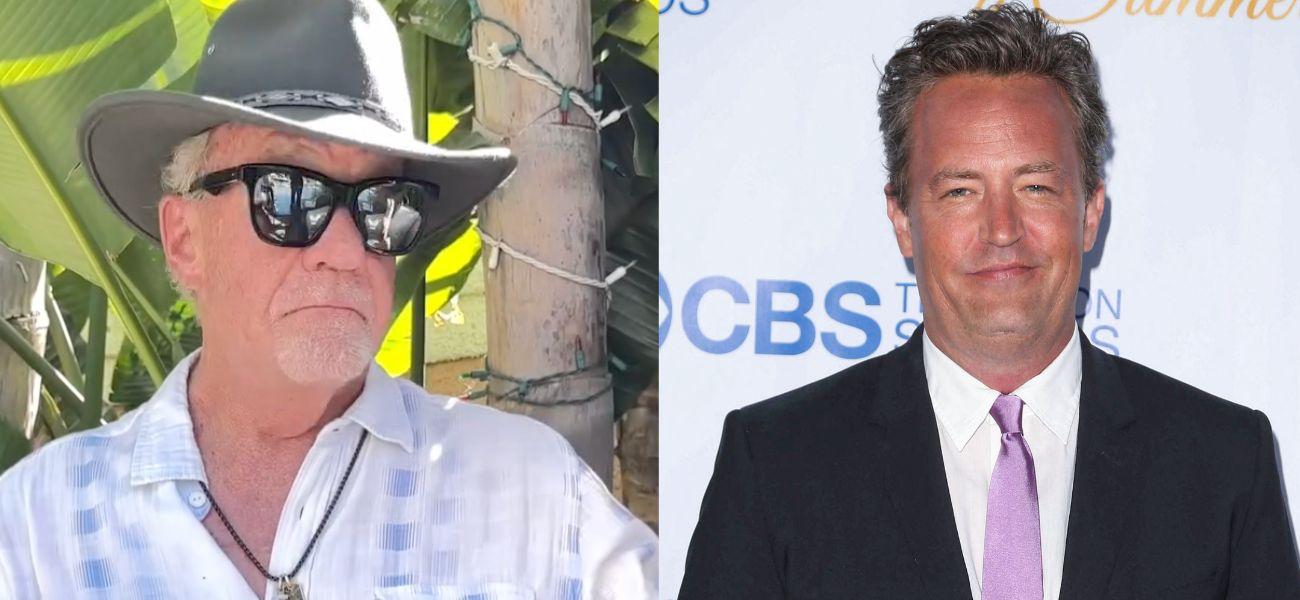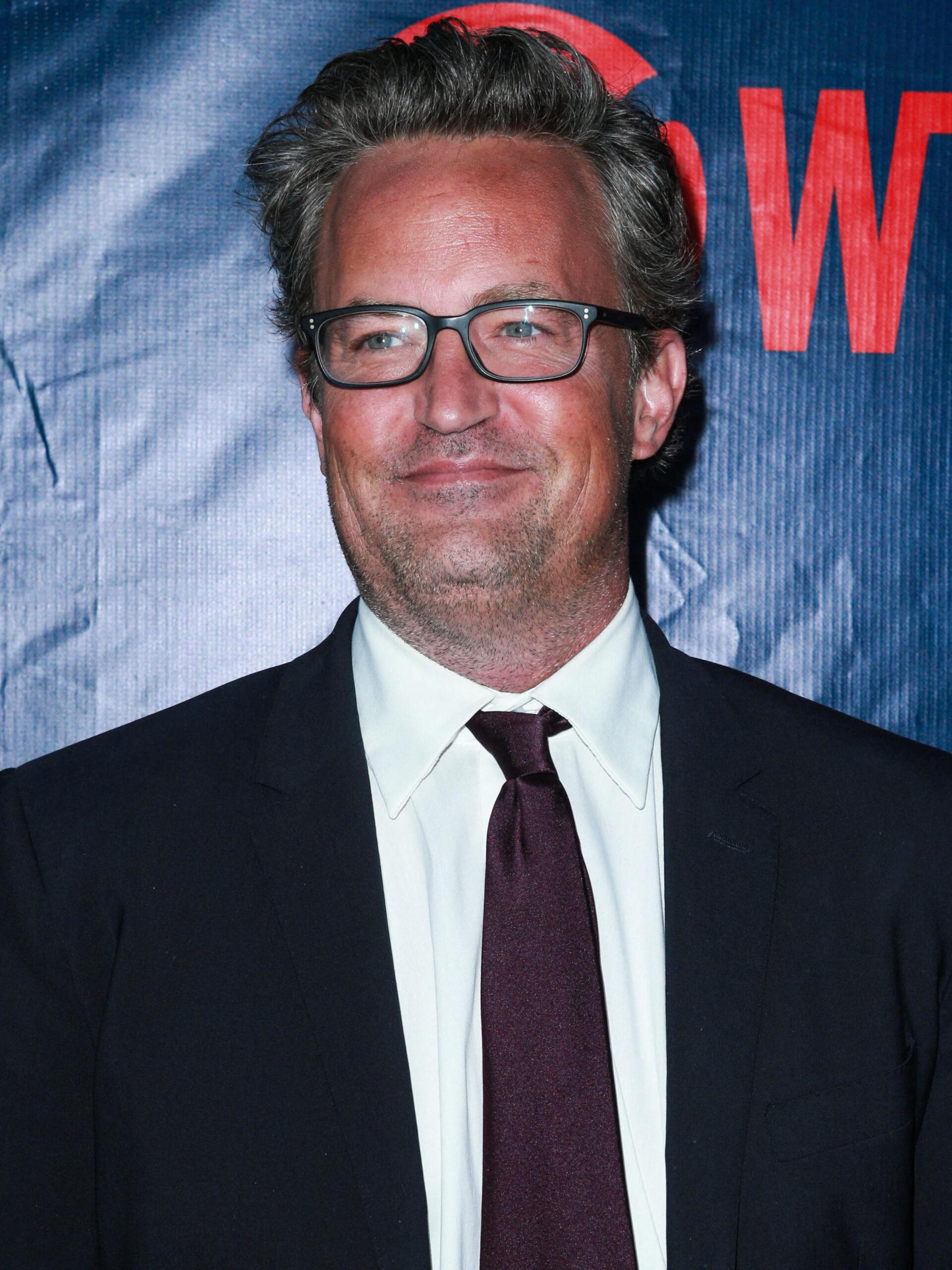Jim Irsay’s Death Sparks Comparisons To Matthew Perry’s Tragic Relapse
By Kelly Coffey-Behrens on August 29, 2025 at 12:30 PM EDT
Updated on August 31, 2025 at 9:15 PM EDT

The shocking death of Indianapolis Colts owner Jim Irsay earlier this year continues to reverberate through both the sports and medical worlds. At just 65, Irsay's passing stunned the NFL community, a man known as much for his devotion to the Colts as for his long, public battle with addiction. Now, new reporting has shed light on Jim Irsay's final months, painting a troubling picture of relapse, questionable medical care, and the unforgiving nature of substance use disorder.
Addiction Expert Weighs In On Jim Irsay's Death, Relapse, And Risky Ketamine Treatments
View this post on Instagram
The Washington Post revealed that Irsay, who once admitted to attending rehab "at least 15 times," was "in the throes of a relapse" before his death. Witnesses reportedly saw him ingesting opioids and ketamine, substances prescribed by Dr. Harry Haroutunian, a California-based addiction specialist.
To better understand Irsay's story and the larger lessons his life and death carry, The Blast spoke exclusively with Richard Taite, founder and executive chairman of Carrara Treatment, about the dangers of relapse, malpractice in addiction medicine, and why wealth and fame can't protect against the brutal reality of substance abuse.
"That tells you the truth about addiction. It doesn't care how much money, power, or access to resources you have," Taite explained of how many times Irsay entered rehab. "Relapsing isn't a moral failing either, it's part of the sobriety process. But it also shows how critical it is to get the right treatment. You can go 15 times, but if you're not digging into the underlying trauma with real therapy, you're just buying expensive timeouts instead of true recovery."
Despite periods of sobriety, Irsay faced recurring setbacks. In December 2023, reports suggested he overdosed, though he publicly denied it, attributing his condition to a leg hematoma. Sixteen months before his death, the Colts revealed he had been hospitalized with a "severe respiratory illness." Still, he remained a fixture at Colts games, determined to show resilience.
Ketamine, Opioids, And A Fatal Gamble
Indianapolis Colts Owner Jim Irsay Died At Beverly Hills Hotel. pic.twitter.com/YMr6cgHaGB
— 0HOUR (@0HOUR1__) August 28, 2025
The Washington Post's reporting sparked outrage when it was revealed that Irsay's relapse coincided with medical treatments that raised serious red flags. Sources confirmed he was prescribed opioids and ketamine in his final two years, an approach Taite condemned in the strongest terms.
"That's outrageous," he told The Blast. "I believe giving opioids and ketamine to someone with Irsay's history is like handing a drowning man an anchor. Addiction medicine has clear guardrails, and crossing them isn't just bad judgment, it's malpractice. He needed protection, not temptation."
The risks were profound. As Taite explained, relapse is uniquely deadly after years of sobriety. "The wiring doesn't go away just because you've been sober for five or ten years," he told The Blast. "Because tolerance resets, a relapse after years clean is far more dangerous. The same amount that used to get you high can now kill you instantly."
Jim Irsay's Death Draws Parallels To Matthew Perry's Tragic Relapse

Jim Irsay's case has drawn comparisons to actor Matthew Perry, whose own relapse and death similarly raised questions about the medical professionals entrusted with his care.
"I think when someone has a known opioid use disorder, opioids are off the table. Period," Taite said. "Ketamine is another trap. While it is being studied for possible benefits in treating depression, when it's in the hands of a recovering addict, it can become another drug of choice. The risk isn't just relapse, it's death."
For Taite, the negligence goes beyond poor judgment, it's systemic failure. "The parallels [with Perry] are obvious. Both men were beloved and had the resources of the world at their fingertips. Perry and Irsay didn't get the care they needed, and the parties involved should be investigated for malpractice."
The Safeguards Families Must Demand
#Colts Owner Jim Irsay reveals he almost overdosed awhile ago…
He said he’s been to rehab at least 15 times.pic.twitter.com/j4f6dHJvLx
— JPA (@jasrifootball) November 21, 2023
Irsay's death highlights not just the failings of medical providers but also the critical role families must play when a loved one is in recovery.
"Families need to insist on transparency," Taite urged. "That means no controlled substances unless absolutely necessary and monitored by an addiction specialist, not just a regular doctor. Random toxicology screens, integrated therapy, and, most importantly, accountability are vital for effective treatment. If the care plan isn't airtight, you're leaving the door wide open for relapse."
It's a lesson painfully learned in Hollywood, sports, and households everywhere that addiction is relentless, and any gap in protection can be catastrophic.
The Legacy of Jim Irsay
View this post on Instagram
What makes Irsay's story even more tragic is that he wasn't only a patient. He was also an advocate. The Colts owner established a foundation focused on mental illness and addiction, hoping to shine light on the very issues that haunted him.
"That's an enormous weight to shoulder," Taite reflected. "On one hand, you're the face of hope and recovery; on the other, you're still fighting your own demons. That pressure can be crushing. But it's also why advocates need real support systems, not just an entourage. You can't be the poster child for recovery if the people around you are quietly feeding you drugs."
For fans, Irsay's death serves as both a loss and a warning. Addiction does not discriminate, not by wealth, fame, or power. And while Irsay's final relapse may have been hidden from the public, his openness throughout his life has left behind a crucial reminder that recovery is never linear, and without proper safeguards, relapse can be fatal.